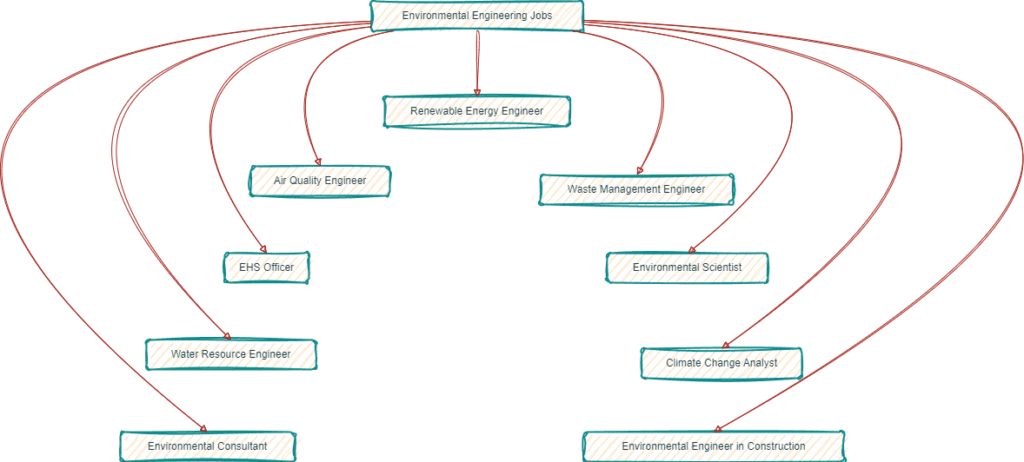Entrepreneurship in Environmental Engineering: Launching Your Own Venture
Environmental engineering is a diverse and growing field that presents many opportunities for entrepreneurship. With the right skills, passion, and business plan, aspiring entrepreneurs can launch impactful ventures that protect the planet.

The Scope of Environmental Engineering
Environmental engineering involves assessing and mitigating human impacts on the environment in areas like air, water, and land management. Some key aspects include:
- Water treatment and supply: Ensuring communities have access to clean drinking water through water treatment plants, distribution systems, and infrastructure projects.
- Waste management: Developing sustainable solutions for solid and hazardous waste collection, transport, and disposal through landfills, recycling programs, and alternative treatment methods.
- Air pollution control: Designing and implementing technologies to monitor and reduce airborne pollutants from industrial emissions, vehicle exhaust, and other sources.
- Site remediation: Leading assessment and cleanup of contaminated lands through soil/groundwater treatment, land revitalization, and brownfield redevelopment.
- Sustainability consulting: Advising governments, organizations, and businesses on green building standards, renewable energy options, carbon footprint analysis, and more.
With growing environmental regulations and demand for specialized services, there are many opportunities for starting new ventures across these areas.
Successful Environmental Startups
Some environmental engineering startups that have found business success include:
- BioHiTech Global (Waste management solutions)
- Blue Planet Systems (Water treatment technologies)
- TerraCycle (Zero-waste packaging solutions)
- Recology (Recycling and compost collection services)
- EcoTech (Air pollution control equipment)
- SCS Engineers (Environmental consulting)
The founders of these companies identified gaps in the market and leveraged their technical expertise to deliver innovative products and services. With the right idea and business acumen, entrepreneurs can follow a similar path.
Identifying the Problem and Opportunity

Conducting Thorough Market Research
For aspiring environmental entrepreneurs, the first key step starts with identifying a problem or need in the market without a satisfactory existing solution. It is important to closely observe your industry and community to uncover any gaps through in-depth market research.
Understanding Customer Pain Points
Gaining a deep understanding of customer pain points is critical. This involves utilizing various research methods like surveys, interviews, and data analysis to substantiate opportunities. The insights collected will also help create a comprehensive business plan.
Developing a Strategic Business Plan

Outlining Your Innovative Solution
With market research findings in hand, thoroughly outline your solution and how it will directly address the identified problem or opportunity.
Creating Financial Projections
Provide realistic financial projections such as startup costs, operating expenses, projected revenue streams and profitability over a 3-5 year period. These projections are important for securing funding.
Describing Target Markets and Strategy
Outline your target customer segments, pricing approach, distribution channels, and marketing strategy within the business plan. Investors will want to see a clear go-to-market strategy.
Highlighting Your Qualified Team
Describe your management team and their relevant qualifications to demonstrate your capability to execute the outlined vision.
Securing Startup Funding

Applying for Grants and Private Funding
Sources like small business grants and private investors that support sustainability solutions should be pursued. Be prepared to clearly pitch your vision to funding sources.
Bootstrapping with Personal Funds
You may initially bootstrap the company through personal savings and low-interest loans while early customer traction is built.
Building a Talented Team

Hiring Key Personnel
Bring on experienced professionals in areas such as engineering, operations, sales, and marketing who are passionate about your environmental mission.
Launching Operations

Finalizing Your Solution
Complete any remaining product or service development, testing and certification requirements.
Obtaining Permits and Approvals
Acquire necessary licenses, permits and legal clearances to officially launch operations.
Piloting with Initial Customers
Actively pursue leads, pilot programs and first customers. Leverage feedback for improvements.
Managing Growth

7 Reasons to Pursue Environmental Engineering In-Demand Career
Continuously Improving
Refine your solution based on customer and market input to fuel ongoing growth.
Expanding Your Reach
Develop new offerings and services to broaden your total addressable market over time.
Scaling Infrastructure Prudently
Methodically add staff, equipment and facilities to efficiently meet increasing demand.
The Role of Carbon Capture and Storage (CCS) in Combating Climate Change
FAQs – Entrepreneurship in Environmental Engineering
Q1. What types of funding options are available for environmental startups?
A1: Common sources of funding include government grants from the Small Business Innovation Research (SBIR) program, state-level green business funds, venture capital (Cleantech VC firms invest heavily in sustainability solutions), angel investors interested in social/environmental impact, and crowdfunding platforms.
Q2. How can environmental entrepreneurs promote their business?
A2: Promotional strategies may include direct sales, partnerships with other related companies, thought leadership through articles/conferences, social media campaigns highlighting your solution’s benefits, and working with non-profits/government on pilot programs for broader exposure.
Q3. What permits and regulations must be considered?
A3: Environmental startups must comply with all relevant laws and obtain necessary permits from the EPA and state/local authorities depending on their industry and location. This may include air quality permits, wastewater discharge permits, hazardous waste storage/transportation permits, and more. It’s critical to research applicable regulations upfront.
Q4. What skills are important for environmental entrepreneurs?
A4: Key skills include a science/engineering background relevant to your industry, business management acumen, marketing expertise, strong communication and problem-solving abilities. Previous work experience in environmental consulting, government agencies, or related industries provides valuable industry knowledge, contacts and credibility.
Q5. How do I stand out in a competitive market?
A5: Differentiation strategies may involve developing really innovative, patent-protected technologies, targeting niche applications or small geographic markets, offering superior customer service, emphasizing environmental/social values, partnering with other complementary solution providers, and constantly innovating to stay ahead of the competition.


